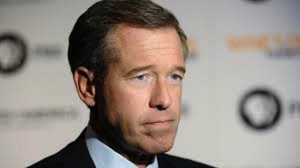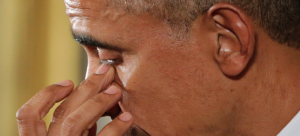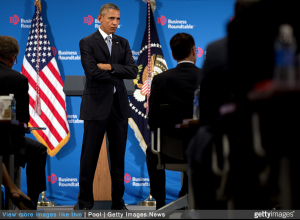There are few moral fashions more tiresome than the largely liberal tendency to “apologize” for the actions of others — whether it’s America’s past sins, the sins of Medieval Christianity, or the actions of your contemporary political opponents.
In the Evangelical world, more liberal Evangelicals have raised this practice to an art form, signaling their “I’m not like those people” social acceptability by joining the secular Left in piling on Christianity. Perhaps a classic of the genre is found in Donald Miller’s bestselling book, Blue Like Jazz, where he describes setting up a “confession booth” at Reed College, where the goal was to turn the notion of confession on its head. Instead of confessing their sins, students and others in the booth would hear a confession of Christianity’s sin. Here’s Miller:
He continued, “We are going to confess to them. We are going to confess that, as followers of Jesus, we have not been very loving; we have been bitter, and for that we are sorry. We will apologize for the Crusades, we will apologize for televangelists, we will apologize for neglecting the poor and the lonely, we will ask them to forgive us, and we will tell them that in our selfishness, we have misrepresented Jesus on this campus. We will tell people who come into the booth that Jesus loves them.”
All of us sat there in silence because it was obvious that something beautiful and true had hit the table with a thud. We all thought it was a great idea, and we could see it in each other’s eyes. It would feel so good to apologize, to apologize for the Crusades, for Columbus and the genocide committed in the Bahamas in the name of God, apologize for the missionaries who landed in Mexico and came up through the West slaughtering Indians in the name of Christ.
I’m sorry, this is not “confession,” it’s a series of conforming moral judgments made by half-informed progressives. From my own experience with similar progressive Evangelicals, the “apologies” come from a place of grade-school understanding of theology and history — and they come from individuals who are almost certain to do less in their entire lives for the “poor and the lonely” than many despised televangelists accomplish in a week.
I felt much the same way watching President Obama’s “high horse” comments, calling out real and perceived sins from our own national and religious past. Who, exactly, is impressed by these comments? Certainly not our enemies (who merely see confirmation of their own critiques) and certainly not the friends who need our strength and assistance far more than they need to see our president’s moral hand-wringing over the sack of Constantinople. A few Kurds may have some dim awareness of Saladin, and even fewer may have heard the name Richard the Lionheart, but what they’d really like is to stay alive, and that requires artillery, armor, ammunition, and — most importantly — resolve.
President Obama’s comments – like the progressive Evangelical “apologies” — are simply ways of standing apart and above his own faith, his own nation, and his own fellow citizens. For the apologizers, it’s an act of mounting their own “high horse” to ride comfortably with members of their own social and intellectual class. President Obama further establishes his credibility with his own cultural base, but at the expense of reaffirming our enemies’ and critics’ hatred of our history and culture. Evangelical apologizers enjoy acclaim that their more orthodox peers will never receive.
At their core, these are acts of pride, not humility, and they carry with them a real cost that we all have to bear.










